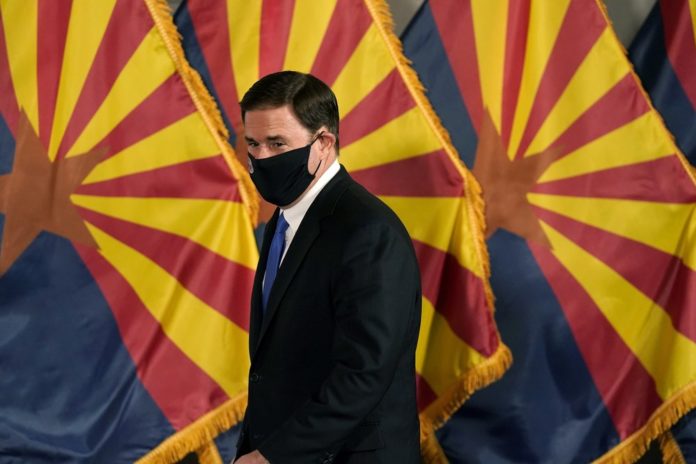
The Arizona Senate has announced a new set of COVID-19 safety guidelines for the upcoming legislative session in January, including requiring masks.
Arizona Senate President Karen Fann told the senators and staff on Monday that anyone who enters the Senate building must have their temperature checked and be wearing masks at all times.
The guidelines also require 6 feet of social distancing when possible and prohibits handshakes or any physical contact during committee hearings and gatherings.
“This was not the scenario I had hoped for the 55th Legislature, but it is necessary to ensure we conduct legislative business and avoid disruption of the process to the best of our ability,” Fann said.
Fann warned that failing to comply with the rules could result in an early end of the session. Lawmakers shut down their buildings last month and cut the 2020 session short because of the pandemic.
“Failure to adhere could result in lack of quorums, inability to conduct voting and other work we need to accomplish, or ultimately session shutdown,” Fann said.
Senate security has been tasked with enforcing the protocols.
The policy bans anyone who is sick or has knowingly been exposed to COVID-19 but doesn’t show symptoms from entering the building and requires staff to notify supervisors if they’re sick or test positive. Similar notification requirements are also made for visitors and senators.
Senate Comptroller Susie Myers will oversee the chamber’s virus safety guidelines and conduct internal contact tracing if lawmakers contract COVID-19. The Senate will highly encourage staff and lawmakers to be tested once a week and provide free tests on-site when tests are more readily available, she said.
The Senate will allow visitors, but only to attend scheduled meetings with lawmakers or staff, or to attend committee hearings, officials said. Visitors will only be allowed in 10 minutes before hearings and must leave the building immediately after it’s over.
For most people, the new coronavirus causes mild or moderate symptoms, such as fever and cough that clear up in two to three weeks. For some — especially older adults and people with existing health problems — it can cause more severe illness, including pneumonia, and death.
Republished with the permission of the Associated Press.














